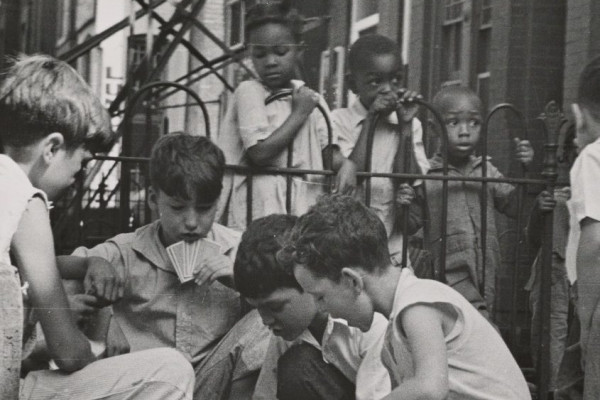What does it take to live a flourishing life? If social media is any indicator, flourishing equates to happiness, and our happiness depends on wealth. How often have we heard people say, “If I could only get rich, then everything would be OK,” or “When I win the lottery, my life is going to change.” Not to mention the get-rich schemes promising to give you the life you’ve always wanted. A 2023 poll reported that 6 in 10 Americans believe money can buy happiness, according to financial services firm Empower. However, research has shown that money can only do so much for us.
In 2010, Princeton University economists Daniel Kahneman and Angus Deaton found that our day-to-day happiness rose as our annual salary increased. But then happiness plateaued at 75,000 dollars. What the public took from this, and what many headlines expressed, was that money can buy you happiness, but only up to a point. This catchy conclusion feeds into our preconceived ideas about wealth and happiness. But it doesn’t tell the full story.
Kahneman and Deaton also showed that higher income only improves your evaluation of your life. However, it doesn’t improve your emotional well-being. Life satisfaction “refers to the thoughts that people have about their life when they think about it”. But emotional well-being refers to the “emotional quality of an individual’s everyday experience – the frequency and intensity of experiences of joy, stress, sadness, anger, and affection that make one’s life pleasant or unpleasant”. The two have very different determinants. Life satisfaction is often determined by our achievements and happiness is found in our relationships. Money can buy satisfaction, but not happiness. “Emotional happiness is primarily social,” says Kahneman.
A group of Boston, Massachusetts adolescents in the 1930s, like many of us today, thought their future happiness would be determined by their wealth and achievements. At least, that’s what they reported when they became the first cohort of the 80-year-old Harvard Study of Adult Development. Through decades of questionnaires and interviews, the study has been able to track the lives of adolescents into old age. What they’ve discovered is that those adolescents’ predictions were way off. According to the study’s fourth Director, Robert Waldinger, Professor of Psychiatry at Harvard Medical School, the study has revealed that our social connections are responsible for happiness. The study teaches us that “good relationships keep us happy and healthier. Period,” says Waldinger. But not any relationship will do. It’s the quality of our relationships that matters. For example, as Waldinger explains, “High-conflict marriages without much affection is bad for your health… and living in the midst of good, warm relationships is protective.”
If relationships are the key to our flourishing, then we must figure out how to navigate barriers to creating and sustaining them.
We can begin by making friends (if we have none or few of them) and treasure and invest in the ones we do have. I mention friends here because family members and romantic partners are often seen as the end-all-be-all to social connection, which isn’t the case. In one of the largest and most comprehensive studies done to date to track friendship and well-being, researchers at the Close Relationships Lab at Michigan State found that those in high-quality friendships lived longer. They found that high-quality friendships were also associated with positive health benefits like higher positive affect and increased physical activity. Friendships matter too.
To be sure, not everyone needs to be our best friend. The Greek philosopher Aristotle reminds us that there are different kinds of friendships. There are pleasure friendships, friends with whom we share common interests and pursuits. We get overall pleasure from being around them. What these friends pursue today will be based on what they enjoy, although those enjoyments might change later. I have several pleasure friendships, friends with whom I share hobbies, like chess club members. But there are also utility friendships, where you get mutual benefits from each other. They are not exploitative relationships but reciprocal. Examples include schoolmates and business partners. Lastly, there are virtue friendships. These are people you are drawn to because of their good character. A major part of this friendship involves wishing the moral good for your friend and contributing to their moral flourishing. This could be a friend whom you admire for their honesty and who keeps you accountable to your moral goals.
It’s not just enough to have these friendships. We must also maintain them. This requires investing in them, although the level of investment might differ depending on the type. Examples include making time for your friends, being a good friend to others, practising emotional intelligence, and not giving up on the relationship without following proper conflict resolution protocols. This fostering of friendship can help us fight against barriers to flourishing, like loneliness and social isolation. They also give us the support we need to be happy.
Just as the quality of our relationships matters, the quality of our interactions does, too. There is no substitute for an in-person connection, according to Kay Tye, a neuroscientist at the Salk Institute of Biological Sciences, who works on social connection and loneliness. For her, social media is asynchronous. When we go on social media, we’re responding to something that has already happened: a picture that was taken days ago of an experience that happened without us. Thus, it’s not a shared experience or true bonding. There is much more synchrony in person. She explains that “social media lacks the interbrain synchrony present in physical inter-actions, which heavily contributes to meaningful social contact.” Plus, social media wasn’t created for true connection. It was created to make us stay on the apps.
I recently watched the documentary “The Black Godfather” about Clarence Avant, the mogul, manager, and trailblazer in the world of Black entertainment in the United States. I was struck by his comment about friendships as he recounted a rough period in his life. How did he survive it? He called on his friends to help. “I don’t have problems. I have friends,” he said.
Money will run out. Tough times will come. But if our support system is strong, we can survive and thrive. This is the true definition of wealth.







